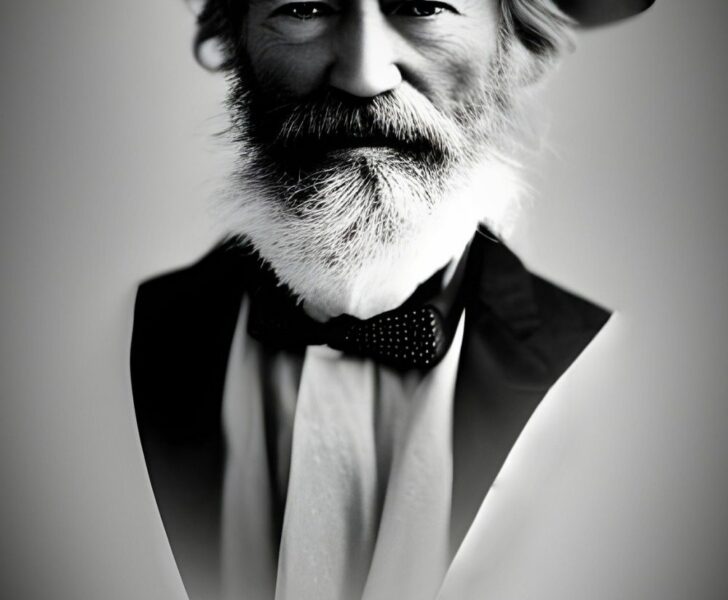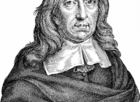Franz Kafka: Exploring the Enigmatic Mind of a Literary Genius

Introduction:
Franz Kafka is undoubtedly one of the most revered literary figures of the 20th century, known for his unique and thought-provoking works. His writings often delve into themes of existentialism, alienation, and bureaucracy, leaving readers captivated and engrossed in the enigmatic world he creates. In this comprehensive article, we will explore the life, works, and impact of Franz Kafka, providing valuable insights for those who are interested in understanding the depth and significance of his literary contributions.
Section 1: Getting to Know Franz Kafka

Franz Kafka was born on July 3, 1883, in Prague, which was then a part of the Austro-Hungarian Empire. He belonged to a middle-class Jewish family and had a complex relationship with his parents, particularly his dominating father. Kafka’s early life was marked by a sense of isolation and introspection, which later found its expression in his literary creations.
Kafka’s writing style is characterized by its unique blend of realism and fantasy. His works often depict ordinary individuals grappling with absurd situations and facing the complexities of navigating a chaotic and oppressive world. Although Kafka’s works gained recognition posthumously, they have since become a fundamental part of world literature, captivating readers with their haunting and introspective narratives.
Section 2: Historical Development of Franz Kafka
Kafka’s literary journey can be categorized into three main phases: The Early Years, The Prague Circle, and The Final Works.
2.1 The Early Years (1897-1912):
During this period, Kafka primarily wrote short stories and prose pieces that revolved around themes of guilt, self-doubt, and existential angst. Notable works from this phase include “Description of a Struggle” and “Wedding Preparations in the Country.” These early works set the foundation for Kafka’s unique writing style and provided a glimpse into the dark and brooding mind behind the author.
2.2 The Prague Circle (1912-1917):
This phase marked a turning point in Kafka’s life and writing career. Inspired by his close-knit literary circle in Prague, Kafka produced some of his most renowned works, including “The Metamorphosis,” “The Trial,” and “The Castle.” These novels showcased Kafka’s ability to seamlessly merge the ordinary with the extraordinary, creating worlds that are both surreal and relatable. The themes explored in these works resonated with readers and established Kafka as a literary genius of his time.
2.3 The Final Works (1917-1924):
In his final years, Kafka’s health began to deteriorate, and he struggled with bouts of depression. Nonetheless, he continued to write with an unyielding determination. During this period, he produced significant works such as “A Hunger Artist” and “The Burrow,” delving deeper into themes of isolation and absurdity. Kafka’s writing during this phase showcased a heightened sense of introspection and a preoccupation with his own mortality.
Section 3: Franz Kafka’s Influence and Legacy
Franz Kafka’s writings have had a profound impact on literature, philosophy, and popular culture, continuing to captivate and inspire generations of readers. His unique style and exploration of existential themes have made him a symbol of the literary avant-garde. Kafkaesque, a term derived from his name, has become synonymous with situations characterized by absurdity, incomprehensibility, and a distorted logic.
Kafka’s works have been translated into numerous languages and have garnered critical acclaim worldwide. His ability to tap into the human psyche and expose the complexities of human existence resonates with readers from all walks of life. Through his narratives, Kafka invites readers to question society’s norms, confront their innermost fears, and grapple with the universal human condition.
Section 4: Featured Snippet Optimized Structure & Bulletpoints
– Introduction:
– Section 1: Getting to Know Franz Kafka
– Early Life and Influences
– Kafka’s Writing Style and Themes
– Section 2: Historical Development of Franz Kafka
– 2.1 The Early Years (1897-1912)
– 2.2 The Prague Circle (1912-1917)
– 2.3 The Final Works (1917-1924)
– Section 3: Franz Kafka’s Influence and Legacy
– Section 4: Featured Snippet Optimized Structure & Bulletpoints (can be added to this section as well)
Conclusion:
Franz Kafka’s profound impact on the literary world cannot be understated. His exploration of the human psyche, masterful storytelling, and thought-provoking themes continue to captivate readers, making him a literary icon for the ages. As we delve into Kafka’s works, we discover a world that is at once familiar and deeply unsettling, inviting us to introspect and reflect on our own existence. Franz Kafka’s legacy as a literary genius will forever endure, leaving an indelible mark on the realm of literature and the hearts of those who dare to explore his enigmatic works.











